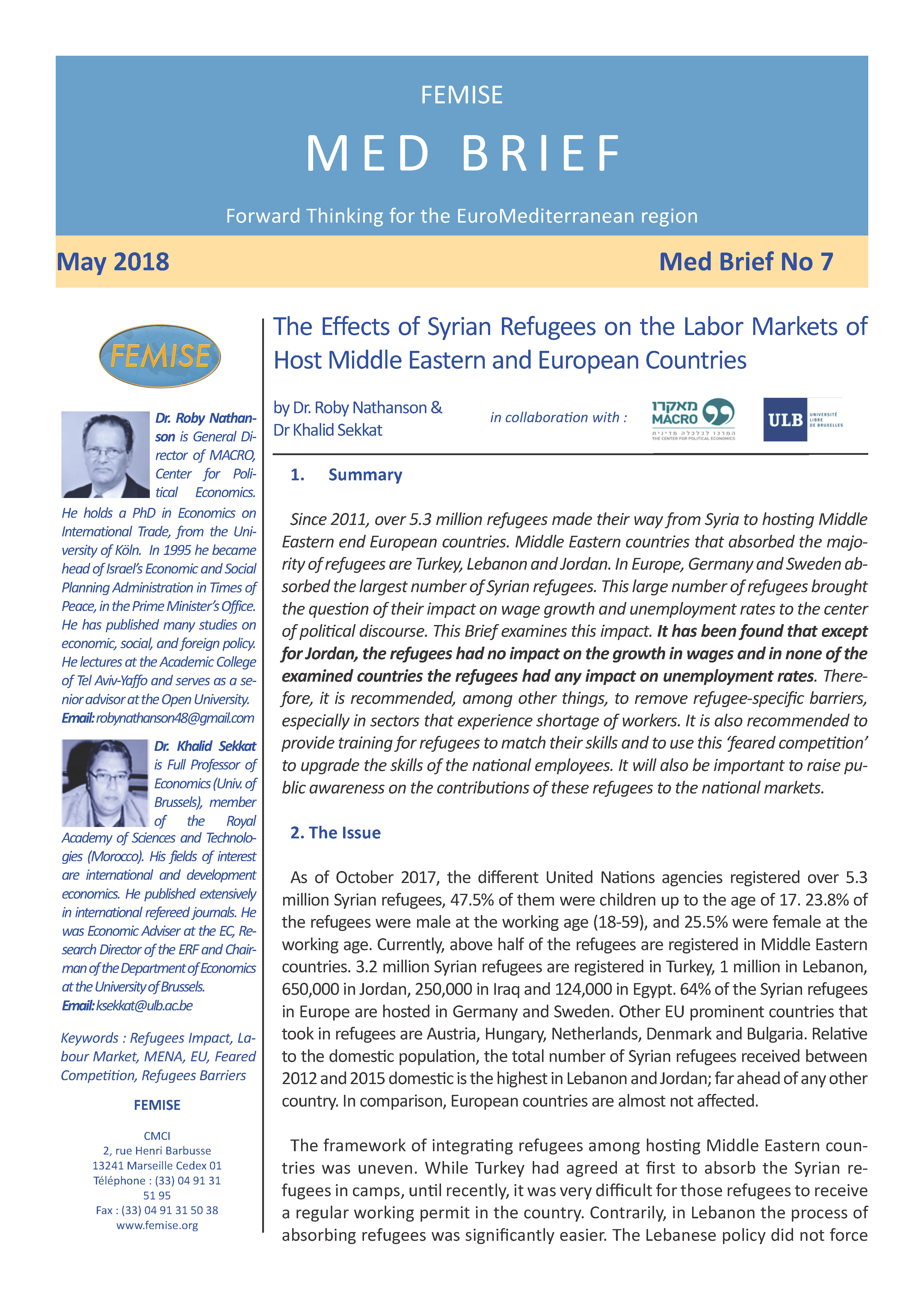 The FEMISE Policy Brief series MED BRIEF aspires to provide Forward Thinking for the EuroMediterranean region. The briefs contain succinct, policy-oriented analysis of relevant EuroMed issues, presenting the views of FEMISE researchers and collaborators to policy-makers.
The FEMISE Policy Brief series MED BRIEF aspires to provide Forward Thinking for the EuroMediterranean region. The briefs contain succinct, policy-oriented analysis of relevant EuroMed issues, presenting the views of FEMISE researchers and collaborators to policy-makers.
The seventh issue of MED BRIEF “The Effects of Syrian Refugees on the Labor Markets of Host Middle Eastern and European Countries” is available by clicking here.

Dr. Roby Nathanson, MACRO Center, Israel
Since 2011, over 5.3 million refugees made their way from Syria to hosting Middle Eastern end European countries. Middle Eastern countries that absorbed the majority of refugees are Turkey, Lebanon and Jordan. In Europe, Germany and Sweden absorbed the largest number of Syrian refugees. This large number of refugees brought the question of their impact on wage growth and unemployment rates to the center of political discourse. This Brief examines this impact.

Dr. Khalid Sekkat, Univ. de Bruxelles, Belgium
It has been found that except for Jordan, the refugees had no impact on the growth in wages and in none of the examined countries the refugees had any impact on unemployment rates. Therefore, it is recommended, among other things, to remove refugee-specific barriers, especially in sectors that experience shortage of workers. It is also recommended to provide training for refugees to match their skills and to use this ‘feared competition’ to upgrade the skills of the national employees. It will also be important to raise public awareness on the contributions of these refugees to the national markets.
The list of FEMISE MED BRIEFS is available here.
 The policy brief has been produced with the financial assistance of the European Union within the context of the FEMISE program. The contents of this document are the sole responsibility of the authors and can under no circumstances be regarded as reflecting the position of the European Union.
The policy brief has been produced with the financial assistance of the European Union within the context of the FEMISE program. The contents of this document are the sole responsibility of the authors and can under no circumstances be regarded as reflecting the position of the European Union.

